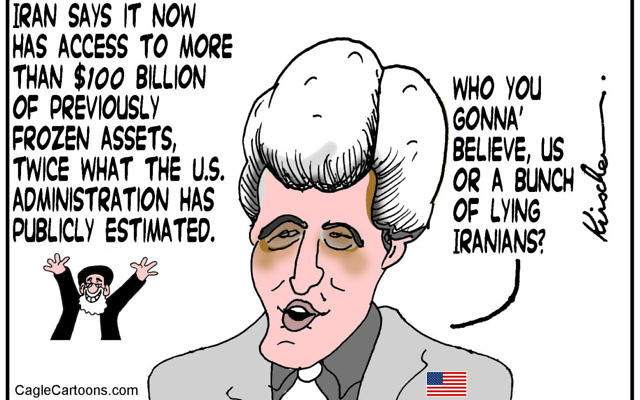Our View: Full Disclosure
Israel is the Middle East’s only functioning democracy.
Supporters of Israel emphasize that truth because it’s a powerful argument for why the United States and other republics should stand with Israel. All Americans have a connection with Israel through such shared values as due process, religious liberty and freedom of expression.
So any infringement on those values must be judged not only on its success at addressing a specific problem, but also on the damage it does to Israel’s international support, especially in the United States.
For example, Israeli Prime Minister Benjamin Netanyahu and other Knesset members were justified in their outrage that three Arab lawmakers visited the families of terrorists killed in recent attacks. Regardless of the reasons for the visit, it gave the impression of endorsing efforts to kill Israelis in the streets.
But banning the trio from legislative debates for two to four months — they still get to vote — sets a dangerous precedent for limiting how lawmakers represent the people who elected them. We’re uncomfortable with a majority restricting the behavior of lawmakers from a religious or political minority, and we fear that the punishment will be used by enemies near and far to label Israel as undemocratic.
A bigger issue is legislation that would require nongovernmental organizations that receive more than half their funding from foreign governments to declare that fact in official reports. The bill passed the first of three readings required to become law, 50-43, on Tuesday, Feb. 9.
Although the legislation makes no distinction among NGOs, it is seen as targeting left-wing groups that focus on the plight of Palestinians or on Israel’s shortcomings. Those NGOs tend to draw support from foreign governments, while right-wing groups rely on private donors.
Israelis have legitimate reasons to wonder why, with all the problems in the world, organizations in their tiny nation are deemed worthy of funding from foreign governments. Imagine how we would feel if a national protest movement were secretly financed by China, Iran or North Korea. At the very least, we would re-evaluate demonstrators’ demands.
Netanyahu argues that the bill is democratic because it forces transparency on NGOs that present themselves as grassroots groups. The information is valuable when judging statements. Of course, it would also be valuable when judging privately funded NGOs.
Unfortunately, the actual effects of the legislation are less important than the perception. The United States, for example, has warned that it could have a chilling effect on democratic debate.
In an ideal world, Israeli democracy would be allowed to operate without outside money — public or private — playing a part and without foreign governments commenting on pending legislation. But in an ideal world Israelis wouldn’t have to fear being knifed or shot or run over every day.
We doubt that having to disclose its funding would deter Peace Now, which has called the bill “a hate crime against democracy,” and we suspect that the information would change few if any opinions about that group and about others critical of Israeli policies and actions. So why bother?
It’s wrong for us, from the safety of an Atlanta-area office, to tell Israelis how to handle legislation they see as related to national security. We can only urge Netanyahu and others in the government to consider the long-term damage to Israel’s image they are risking to do little more than score some political points.




comments